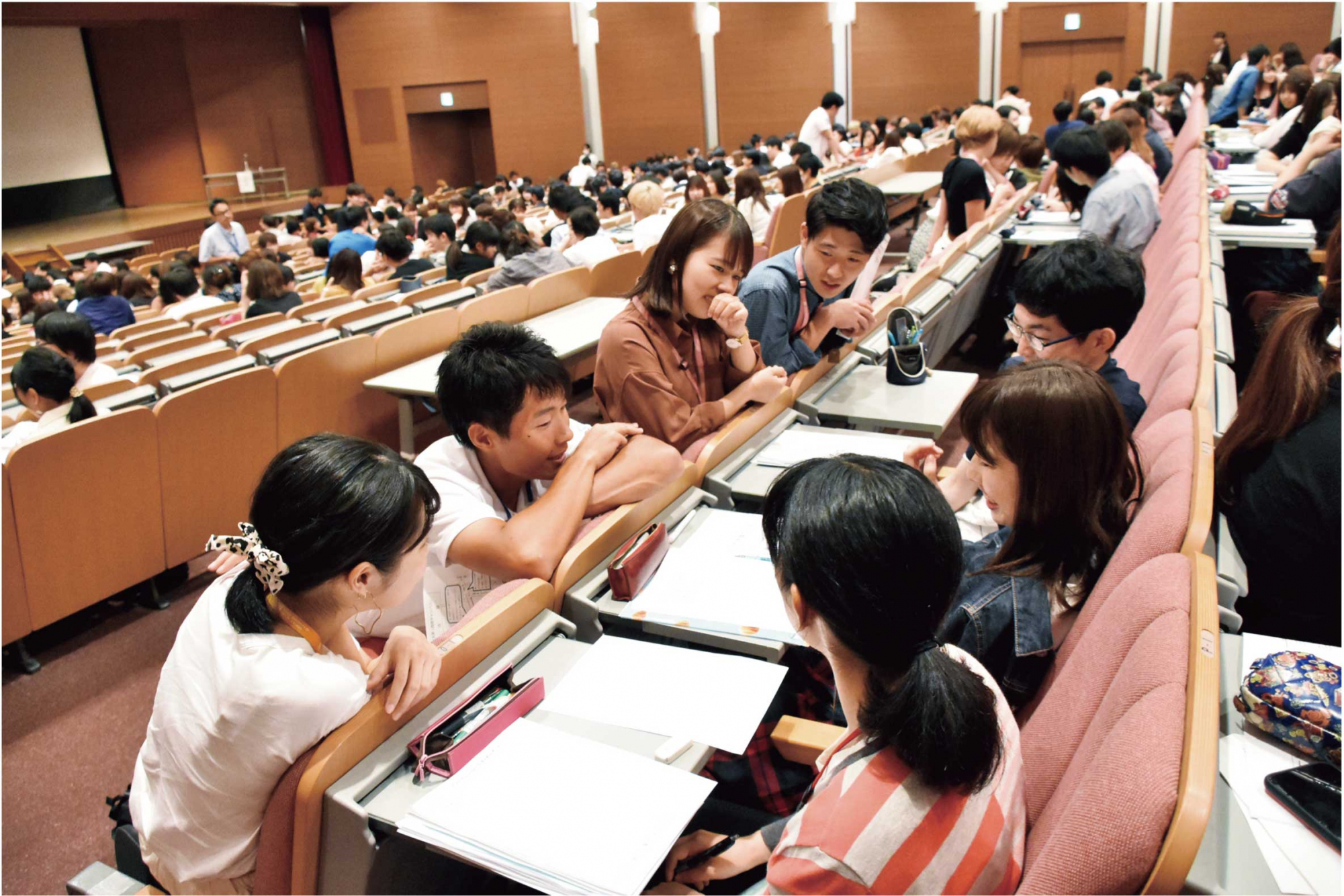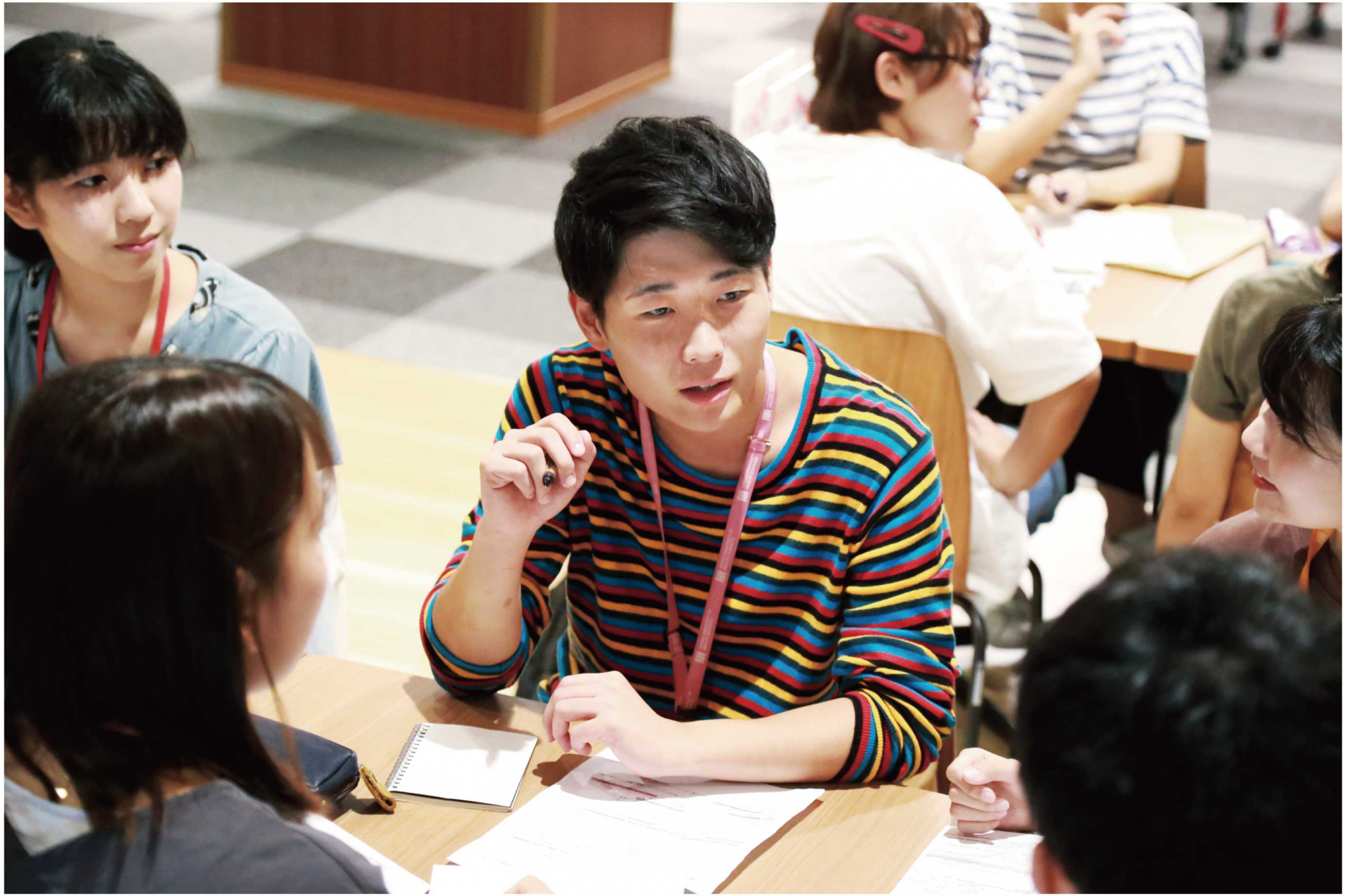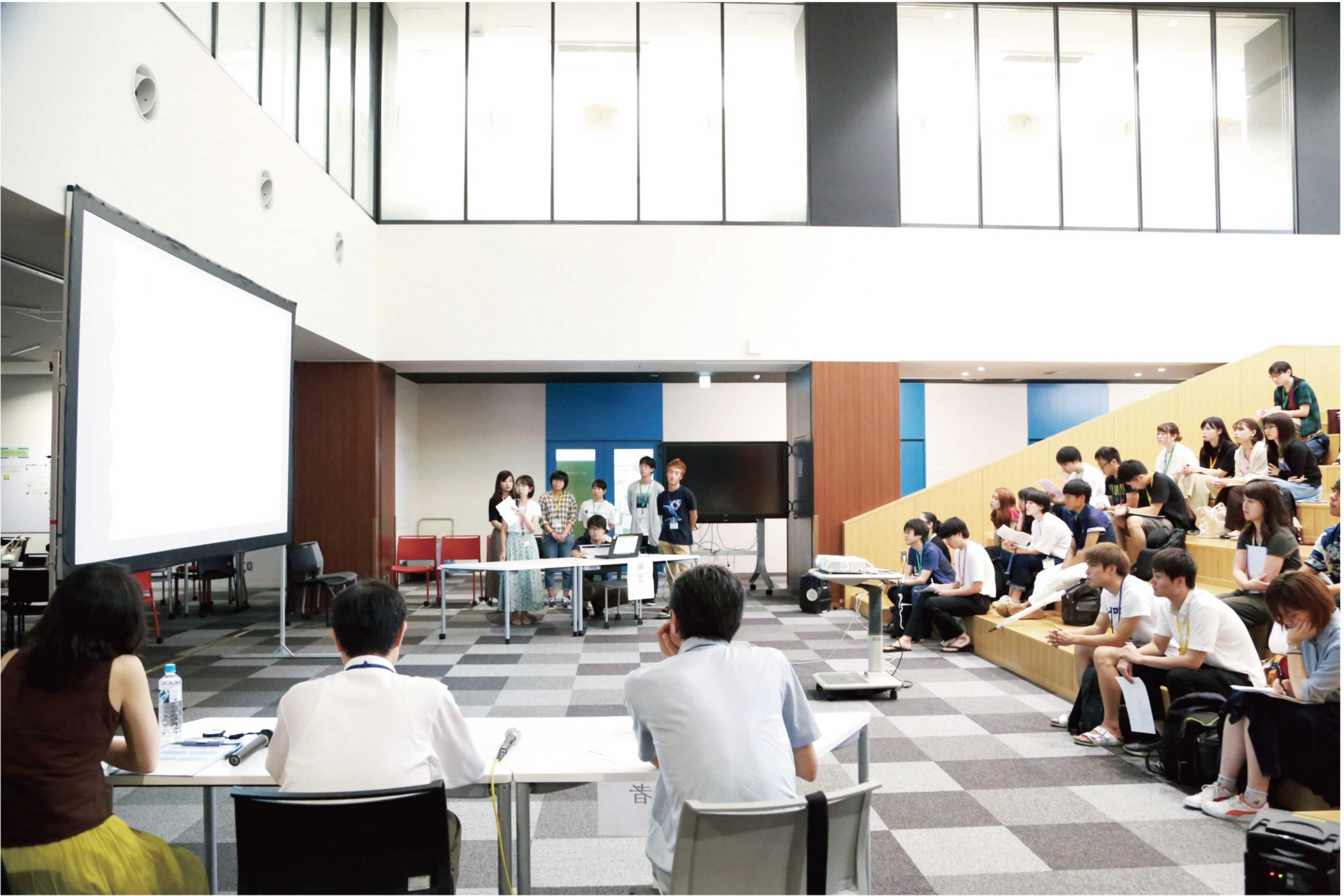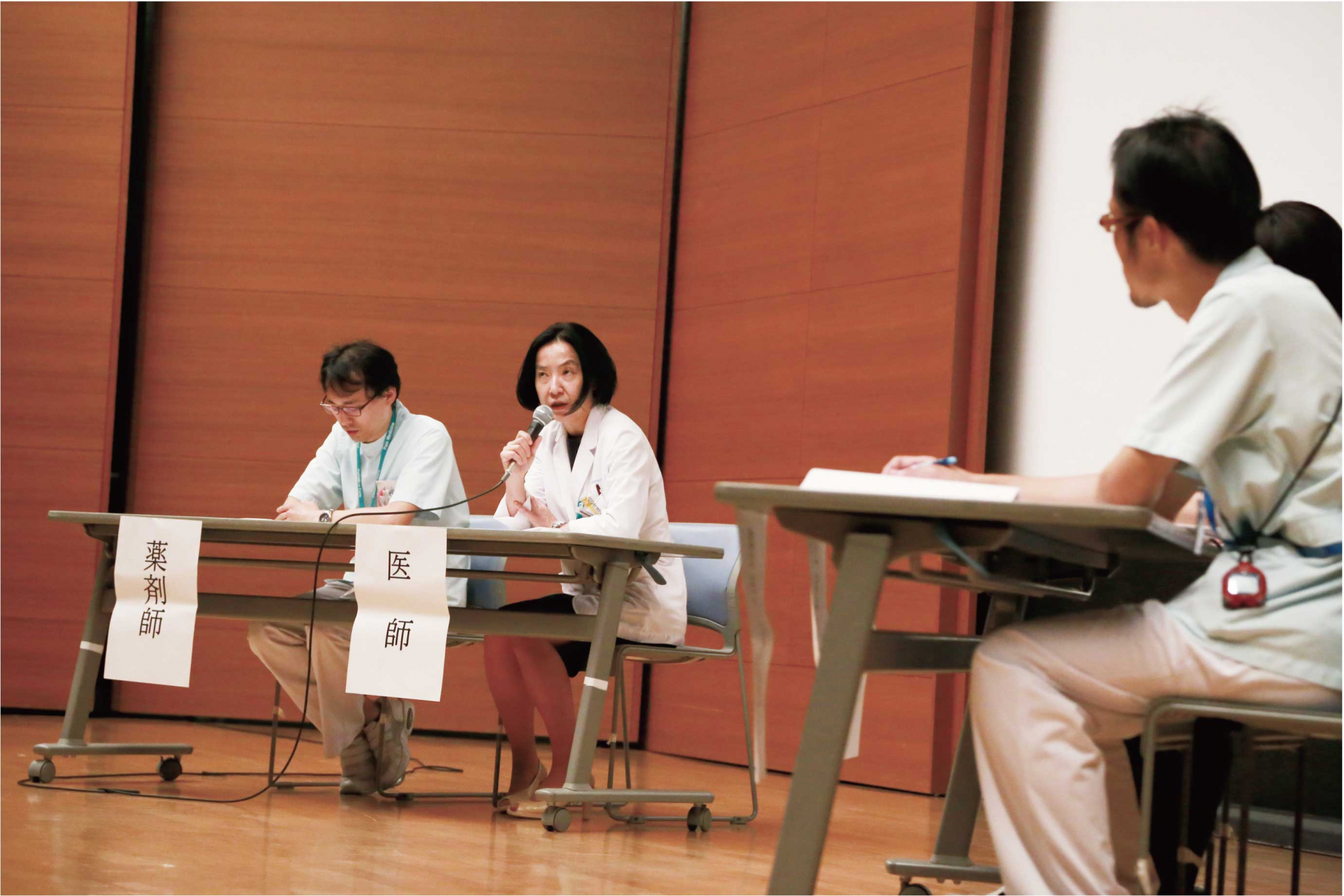Undergraduate and Graduate School
Team medical training seminar (3rd year)
The Hyogo Medical University College of Hyogo Medical University Educational Corporation comprises the faculties School of Medicine, School of Pharmacy, School of Nursing, and School of Rehabilitation, and aims to provide borderless education centered around Hyogo Medical University Hospital.
Participants are divided into mixed-student groups of 6-7 students from various departments, and while understanding the importance of professional roles and communication, they use IPW (interprofessional collaboration) to solve patients' problems. This is a practical exercise that allows participants to experience collaboration in the medical field, including a mock conference with active doctors and other medical professionals.
Exercise Schedule
1日目
- guidance
- Icebreaker
- Lectures (medicine, clinical psychology)
- discussion

Icebreaker
Students from each faculty will introduce themselves and communicate with each other.
2日目
- lecture
- discussion
3日目
- IRAT (Individual Test)
- TRAT (Group Test)
- feedback
- Case Discussion

Case Discussion
The group will discuss a hypothetical case scenario, and each member will use their expertise to determine the cause of the disease, treatment and care policies, and strategies to improve quality of life.
4日目
- Special lecture on multi-professional collaboration
- Case Discussion
5日目
- Case Discussion
- Presentation preparation
6日目
- Presentation

Presentation
The treatment plan decided in the group discussion is presented. After the presentation, there is a question and answer session, and active discussion takes place.
7日目
- Case Commentary
- Mock Conference
- test
- Exam Explanation Lectures
- Overall Comments

Mock Conference
How would current medical professionals evaluate the issues that students have tackled? This is a chance to experience discussions just like in the medical field.
Comments from participating students
School of Medicine
- I had only vaguely thought about interprofessional collaboration, but through this case I realized that collaboration must be centered on the patient.
- I tried to be open to learning from students of other faculties.
- I felt that the knowledge I gained from lectures and books alone was not enough to cope with the real world of team medical care.
- The content was more serious and realistic than the joint tutorial in the first year.
- I would like to be able to hear opinions from people in all professions who work with the patient, and then I would like to fully understand the opinions that are expressed in order to provide better medical care to the patient.
School of Pharmacy
- As I am a student School of Pharmacy, I tried to explain the information about the therapeutic drugs, both their good and bad points, in a way that was easy for students from other faculties to understand.
- We considered multiple treatment options for this case, but had difficulty deciding which combination would be best for the patient.
- I felt that unless everyone understood the patient's condition and the goals of treatment, the response would be disjointed.
- School of Nursing and School of Rehabilitation students who have completed their internships were particularly vocal in their opinions, so I would like to learn so that I can speak in a similar way when I complete my off-campus internship next year.
- I felt like I had grown as I was able to immediately think of things that I could do and should do in my profession just by reading the case scenario.
School of Nursing
- Within the group, I played a leadership role in gathering opinions. I also tried to communicate what I knew, regardless of whether it was within my field or not.
- Although none of the members had met before, they quickly became good friends and created a friendly atmosphere with lots of opinions.
- From a nurse's perspective, students assessed the physical, mental, and social condition of patients, considered possible future risks, and thought about what kind of care was needed while exchanging opinions and information with students from other faculties.
- Compared to the joint tutorials in the first year, we were able to discuss the cases better because each of us had more of our specialized knowledge to work with.
- I was able to learn about the approaches taken by various fields, not only nurses, but also doctors, pharmacists, physical therapists, and occupational therapists, all with the aim of improving patients' quality of life.
School of Rehabilitation
- During the discussions, whenever I didn't understand something, I immediately asked questions or sought clarification, making sure to fully understand the roles and content of each faculty.
- During discussions, I made a conscious effort to initiate conversations myself.
- The information that students wanted to ask students from other departments was clear, and I felt that there was good cooperation between departments. I think that I was able to work with a greater awareness of team medicine than I did in my first year.
- I realized that we all share a common desire to provide better treatment for our patients.
- I felt that I wanted to gain more knowledge and skills so that I could provide better medical care by working with patients, their families, other professionals, and the local community.